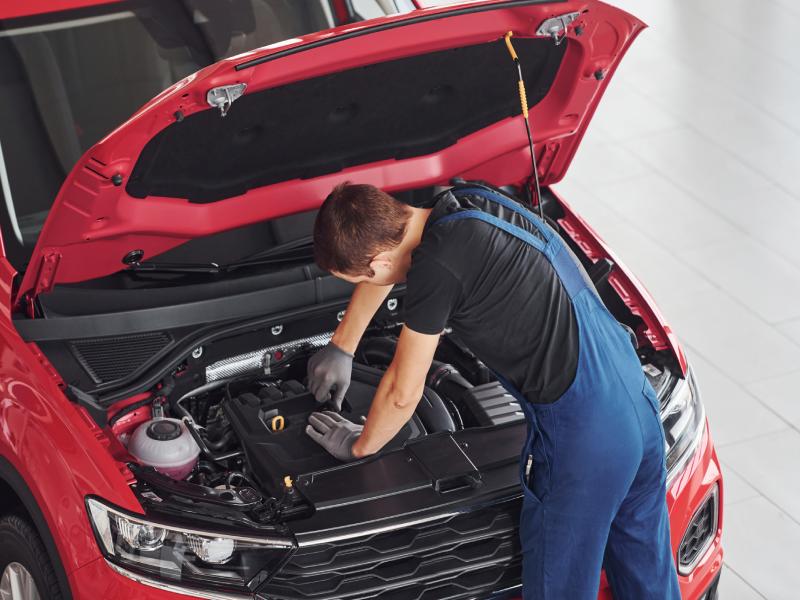Colorado Lemon Law Lawyer: Protect Your Rights with Legal Representation
When you buy a new car, you expect it to run smoothly without any issues. Unfortunately, some vehicles turn out to be “lemons,” meaning they’re riddled with defects that just don’t go away no matter how many times they’re repaired. This can be frustrating and overwhelming as you try to navigate your rights and get the situation resolved. That’s where a Colorado Lemon Law lawyer comes in. With their expertise in lemon law cases, these attorneys can help protect your consumer rights and guide you through the process of seeking compensation or a replacement vehicle. In this article, we’ll explore the crucial steps involved in pursuing a Lemon Law claim in Colorado and why having legal representation is more important than you might think.
To find a qualified lemon law lawyer in Colorado, you can start by searching online legal directories, checking reviews, and consulting state bar associations for attorneys who specialize in consumer protection and lemon law cases. Additionally, consider reaching out for consultations to determine which lawyer best fits your specific needs and circumstances.
Your image will be ready in under 1 minute…
Why Hire a Lemon Law Lawyer in Colorado
The journey through a Lemon Law claim can be complicated, but the right attorney can simplify it immensely. One major reason to hire a specialized Lemon Law lawyer is their expertise. They are passionate about auto-related law and have spent significant time learning the ins and outs of Colorado’s specific regulations. This specialized knowledge is paramount because every state has its own Lemon Laws, and understanding the nuances can be vital to your case’s success.
Expertise Counts
Working with a regular lawyer may seem like a viable option, but those without specific training in Lemon Laws often miss critical details that could affect the outcome. A Lemon Law attorney knows precisely what information is needed and understands which documents must be presented to support your case. For instance, they are familiar with how to gather evidence concerning defects and how to document repair attempts thoroughly.
Think of it this way: navigating through automotive legal procedures without specialized knowledge is like trying to find your way through a maze while blindfolded. A Lemon Law lawyer provides clarity and direction so you don’t get lost.
Negotiation Power
In addition to expertise, Lemon Law attorneys also wield significant negotiation power. Most manufacturers have teams of skilled attorneys whose job is to protect their interests and minimize liability. An unrepresented consumer might find themselves overwhelmed by these corporate legal teams, leading to less favorable settlement options or outright intimidation.
On the other hand, when you have a Lemon Law lawyer at your side, they come equipped with not just knowledge but also strategies designed specifically for dealing with manufacturers. Their familiarity with common tactics employed by manufacturers allows them to anticipate counter-moves. This kind of preparation helps ensure that negotiations proceed smoothly and that you have a fighting chance for justice.
Consider this perspective from Denver resident Jane Doe: “My lawyer got me a full refund on my car, something I couldn’t have done alone.” Her experience underscores the fact that negotiating on your behalf requires trained skill and confidence—attributes that come naturally to lawyers who specialize in this area.
Having expert legal representation means you’re not alone in facing daunting corporate legal teams; you have someone who understands the landscape and can advocate effectively for your rights. Now, let’s explore further protections available under state law that help safeguard consumers in similar situations.
Consumer Rights Under Colorado’s Lemon Law
Knowing your rights under Colorado’s Lemon Law can significantly affect how you handle issues with a malfunctioning vehicle. This law exists to protect consumers like you who purchase or lease new vehicles that turn out to have serious defects, often referred to as “lemons.” These are not minor inconveniences; we’re talking about defects that impact the safety, value, or usability of the vehicle. It’s vital to recognize that if your vehicle exhibits such defects and can’t be repaired after a reasonable number of attempts, you are entitled to specific remedies.

Specific Rights
The crux of the matter is that consumers in Colorado are entitled to either a refund or a replacement vehicle if their car is found to be nonconforming. But what does “nonconforming” mean? Simply put, it refers to any significant defect rendering the vehicle unsafe, unfit for ordinary driving, or diminishing its market value. Typically, this means that if you experience the same issue four times or the vehicle spends 30 cumulative days in the shop within the first 12 months or 12,000 miles, you are clearly protected by the law.
However, just being eligible doesn’t guarantee success. You must be ready to gather evidence! For example, keep all repair records and correspondence with dealerships. Your documentation serves as critical proof should your case need to escalate towards legal action. You must make sure that you can demonstrate the pattern of unresolved issues as well as attempts made on those repairs.
Empowerment through knowledge cannot be overstated here; being equipped with this information greatly bolsters your standing when negotiating with manufacturers or dealers about a refund or replacement. Additionally, understanding these stipulations forms a solid foundation for your legal case should you decide to pursue one.
As John Smith, a Lemon Law expert, aptly states: “Educated consumers are empowered consumers.” This rings especially true when navigating what can potentially unfold into a tumultuous ordeal without adequate representation or knowledge.
Being informed about your rights not only provides peace of mind during your purchasing decisions but also equips you with the necessary tools to effectively assert those rights in challenging situations. Let’s shift our focus now to essential criteria regarding vehicles and warranties involved in these matters.
Vehicle and Warranty Criteria
Not all vehicles are created equal when it comes to Lemon Law protection. For instance, you should be aware that not just any vehicle will qualify, which places importance on knowing what makes a vehicle eligible. New cars, trucks, and motorcycles that are either purchased or leased in Colorado typically fall within the parameters of this law. However, these vehicles must also be acquired for personal, family, or household use; if you bought a truck primarily for business purposes, it generally won’t meet the criteria.

It’s also essential to understand that the defect in question must substantially affect the vehicle’s safety, value, or usefulness. Think of it this way: if a new car has repeated engine issues that cause it to stall unexpectedly while driving, this would likely fulfill the Lemon Law criteria since it severely impacts safety and overall functionality.
Eligible Vehicles
- New cars, trucks, and motorcycles bought or leased in Colorado
- Vehicles bought for personal, family, or household use
- The defect must substantially affect the vehicle’s safety, value, or usefulness.
Now let’s explore warranty matters.
Warranty Matters
The warranty plays a pivotal role in determining whether your vehicle qualifies as a lemon. A critical point is that any defect must occur within the warranty period for you to take advantage of this legal recourse. Typically, manufacturer warranties last for about three years or cover 36,000 miles; however, this can vary from one manufacturer to another. Always check your warranty booklet for specific details regarding coverage limits.
Notably, some manufacturers offer extended warranties that may provide additional protection beyond the typical terms. This can be particularly beneficial if you plan on keeping your vehicle long-term. Understanding these specifics helps you navigate potential pitfalls since defects appearing after your warranty expires might leave you without options despite ongoing issues with your vehicle.
Moreover, documenting any repairs made during the warranty period becomes crucial for your case. Keeping detailed records of service appointments and repair attempts can serve as vital evidence should you need to proceed with a Lemon Law claim later on.
With a solid grasp of both vehicle and warranty criteria, you’re well on your way to navigating legal complexities effectively as we transition into reviewing alternative avenues for addressing disputes.
Dispute Resolution Process
Filing a Lemon Law claim isn’t merely about expressing dissatisfaction; it follows a structured path that can significantly impact your case’s outcome.
Starting with robust documentation is key. This first step involves keeping meticulous records of all your repair attempts. Each receipt, repair order, and communication with the dealership or manufacturer paints a clearer picture of the ongoing issues with your vehicle. Treat this like building a story where each detail strengthens your narrative; without it, you risk missing critical elements that could help validate your claim.

Step I – Documenting the Defect
Think of documentation as weaving a tapestry—each thread represents an attempted repair or an issue observed. As you gather these threads, you don’t just create evidence; you craft an undeniable case showcasing the car’s persistent problems. The more comprehensive your records are, the easier it becomes to argue that the car is indeed a “lemon.” This includes dates, nature of the defects, what was done at the repair shop, and how those repairs failed to resolve the issues.
Moving on from documentation, your next step is informing the manufacturer.
Step II – Notifying the Manufacturer
After thoroughly documenting every aspect, it’s time for direct action: notifying the manufacturer in writing about the defect and your intention to file a Lemon Law claim. This step might seem simple but requires careful consideration. You must clearly articulate your concerns, referencing all previous repair attempts and failures.
Sending this notification via certified mail is crucial as it ensures you have proof of delivery and receipt. It creates an official record indicating that you’ve formally informed them about the persistent issues with your vehicle.
Now that you’ve laid down formal notice, it’s worth considering how disputes may unfold further.
Step III – Mediation Attempts
Many disputes find resolution through mediation before they escalate to more serious confrontations like arbitration or court actions. Mediation is essentially a negotiation facilitated by a neutral third party who helps both sides come to an agreement without incurring additional expenses or time lost in court proceedings.
Think of mediators as arbitrators who gently steer you toward mutual understanding rather than conflict.
However, if mediation proves unsuccessful, don’t fret; this doesn’t spell doom for your case. Instead, consider arbitration or legal options as pathways forward where your claim can still be heard and addressed adequately.
Understanding these steps not only prepares you for what lies ahead but also empowers you in navigating complex legal waters regarding Lemon Law claims. Next, we will explore various legal avenues available when facing persistent vehicle defects.
Arbitration and Legal Steps
Arbitration serves as an effective alternative to traditional court proceedings when disagreements arise between consumers and manufacturers. This process is usually favored because it tends to be faster and less formal than going through the courts. Many manufacturers have established arbitration programs specifically for lemon law disputes, aiming to provide a streamlined resolution process.
The key advantage of arbitration is that it can often prevent lengthy litigation, reducing the overall stress associated with legal battles. Before embarking on this journey, it’s wise to investigate whether your vehicle’s manufacturer is part of Colorado’s Lemon Law arbitration program; taking this step could save you considerable time and effort.
If arbitration does not yield a satisfactory result, you may find yourself needing to explore formal legal proceedings.
When arbitration fails—or if the manufacturer doesn’t participate—a lawsuit is the next step. This means filing a complaint in court, which will engage a more structured legal process. It’s critical at this stage to gather and present all relevant documentation, including proof of purchase, repair records, and any correspondence with the manufacturer. By presenting each piece carefully, you’re laying a solid foundation for your case. Engaging in legal proceedings can seem daunting; however, it’s reassuring to know there’s a roadmap for navigating this territory.
Recommendation: Having a seasoned attorney by your side can significantly bolster your chances of achieving a favorable verdict. Not only do they bring expertise in lemon law claims, but their experience also helps shield you from potential pitfalls in the legal system.
As you prepare for this next phase, consider how specific actions are crucial to enhancing your position.
An attorney specialized in lemon law can anticipate challenges before they arise, ensuring that all procedural requirements are met and that evidence is effectively presented in court. They are skilled at negotiating favorable settlements too, which may save you the time and energy involved in prolonged litigation. With their knowledge of legal timelines, filing deadlines, and courtroom etiquette, moving forward becomes less overwhelming.
By understanding these steps and having skilled representation, you’ll be better equipped to face whatever comes next in asserting your rights as a consumer.
Case Outcomes and Remedies
Successful Lemon Law cases often lead to various remedies that can substantially impact your experience as a consumer. When faced with a defective vehicle, it’s vital to understand that there are options available to you through the law. One of the most compelling aspects is the potential for full refunds, which generally includes taxes and registration fees. Imagine receiving not just the price you paid but everything else associated with purchasing your vehicle—this remedy can provide significant relief if you’re dealing with ongoing repair issues.
Potential Remedies
When filing a Lemon Law claim in Colorado, you should be aware of three primary outcomes:
- Full vehicle refund including taxes and registration fees
- Vehicle replacement with a similar model
- Cash settlement for diminished value
In some situations, a consumer might choose the option of a vehicle replacement. If your car has repeatedly failed or doesn’t perform as it should, receiving an equivalent model can feel like a victory. This not only alleviates your previous frustrations but allows you to start anew without the burden of defects weighing on your experience. This can be particularly beneficial when reliability is essential, such as for those who rely on their car for daily commutes.
Moreover, another remedy is the possibility of cash settlements for diminished vehicle value. This outcome acknowledges that even after repairs, your vehicle’s resale value may remain lower due to its history of issues. If you’ve invested time and resources into resolving these problems without satisfactory results, this remedy acts as compensation for what you’ve lost.
According to Colorado’s Department of Revenue, approximately 80% of Lemon Law cases result in refunds or replacements. This statistic highlights consumer rights and underscores how seriously the law views consumers’ plight. The law’s inclination toward favorable outcomes means proactive steps can yield tangible rewards. Understanding this data gives you leverage in negotiations and empowers you during discussions with dealerships or manufacturers.
Knowing the possible outcomes through your Lemon Law case allows you to approach each step with greater confidence. With these remedies reinforcing consumer protection, you’ll be well-prepared to navigate the next phase of securing effective legal representation.

Choosing a Colorado Lemon Law Attorney
When it comes to finding a competent Colorado Lemon Law attorney, a few key criteria can help narrow down your choices. A strong track record is crucial; you want someone who understands the legal intricacies and has successfully represented clients like yourself.
Look for attorneys with high win rates in Lemon Law cases and seek out client testimonials that speak to their experience and results. Often, satisfied clients will share how their attorney made the process smoother, providing valuable insights for your decision.
Additionally, it’s wise to take advantage of the free consultations that many lawyers offer. This gives you an opportunity to gauge both their expertise and compatibility with your case.
During these meetings, ask about their experience with cases similar to yours and their approach to your specific situation. Trust your instincts—how comfortable do you feel discussing your concerns? An attorney should not only be knowledgeable but also approachable and willing to answer all of your questions.
Once you’ve done some groundwork on qualifications and client experiences, it’s essential to consider whether to choose a specialist or a generalist attorney.
Specialist vs. Generalist
Opting for a specialist in Lemon Law means you’ll have representation dedicated specifically to this field. A specialized lawyer can dive deeply into the nuances of Lemon Law, resulting in better outcomes. However, this level of expertise may come with a higher price tag.
It’s important to weigh that against potential long-term savings; having a specialist represent you may ultimately be more economical by leading to a quicker resolution or higher compensation.
On the other hand, generalist attorneys can sometimes offer lower fees but might lack the focused knowledge necessary for Lemon Law cases. While they may provide solid legal support overall, their understanding of the nuances involved might not be as extensive as that of a specialized attorney.
Therefore, determining what matters most for your situation—cost versus competence—can greatly influence your decision and potentially impact the outcome of your case.
Taking the time to select the right attorney is an investment in your future. Understanding this relationship lays essential groundwork as you navigate the complexities of legal processes related to your situation.
Benefits of Legal Representation
Some might think they can navigate a Lemon Law case solo, but having a skilled attorney by your side is like having a seasoned navigator on an uncharted sea. The benefits are plentiful and can make a significant difference in the outcome of your case.
Expertise and Strategy
A Lemon Law attorney brings specialized knowledge and strategic planning to your case, increasing your chances of success exponentially. These lawyers understand the nuances of the law, know the common pitfalls firsthand, and can anticipate what the manufacturer may throw at you.
They are adept at gathering evidence and documentation, which is critical to proving that a car is indeed a lemon. Familiarity with previous cases allows them to formulate compelling arguments tailored to your specific situation, ensuring that nothing gets overlooked during negotiations or trials. Such expertise not only streamlines the process but also alleviates the stress of grappling with complex legalities.
However, it’s not only about navigating legal hurdles; there are financial aspects to consider as well.
Financial Benefits
While legal fees might appear high upfront, many Lemon Law attorneys work on a contingency basis. This means they only get paid if you win—aligning their financial interests with yours and reducing your risk. You can focus on building your case without worrying about accumulating hourly fees.
This arrangement often enhances the lawyer’s motivation to achieve favorable results promptly since their payment depends on securing a positive outcome for you. Essentially, hiring a competent Colorado Lemon Law attorney means investing in your future return—turning what could be an exhausting battle into an achievable goal with less financial strain.
“Hiring a lawyer was the best decision. They handled everything, and I got a full refund,” says Mark Lee, a Colorado resident who successfully won his case.
Mark’s experience echoes a common sentiment among clients who feel that professional representation provides better outcomes and instills confidence during challenging times.
In summary, engaging a dedicated Colorado Lemon Law lawyer not only empowers you legally but also offers substantial peace of mind throughout the process. With expert guidance and shared financial goals, you’re better positioned to navigate this complex journey.
How does the lemon law process work in Colorado?
In Colorado, the lemon law process involves several key steps: first, a consumer must report the vehicle’s defects to the manufacturer or dealer, providing them with the opportunity to repair the issue within a reasonable number of attempts (generally considered to be three attempts for the same issue). If repairs are unsuccessful, consumers can request a refund or replacement vehicle. The process typically requires documentation of repair attempts and communication with the manufacturer. According to statistics, over 1 in 100 vehicles sold may be classified as a “lemon,” making it essential for consumers to understand their rights and seek legal representation to navigate this process effectively.

What types of vehicles are covered under Colorado’s lemon laws?
In Colorado, the lemon laws cover new motor vehicles that are purchased for personal use, including cars, trucks, motorcycles, and SUVs. To qualify, these vehicles must have significant defects that impair their use, safety, or value within the warranty period. Specifically, if a vehicle has been repaired multiple times for the same issue without a successful fix or is out of service for an extensive period, it may be deemed a “lemon.” Statistics indicate that up to 1 in 100 vehicles may face lemon law claims, underscoring the importance of legal representation to protect consumer rights in such cases.
What is the typical timeline for resolving a lemon law case in Colorado?
The typical timeline for resolving a lemon law case in Colorado can vary, but it usually takes between a few weeks to several months. Many cases are settled within 30 to 90 days after filing, especially if the manufacturer is cooperative. Statistics show that a significant percentage of lemon law claims are resolved through arbitration or settlements, which can expedite the process. However, complex cases may take longer, especially if litigation is necessary. Always consult with a specialized lawyer to navigate your specific situation efficiently.
Can I file a lemon law claim without hiring a lawyer in Colorado?
Yes, you can file a lemon law claim without hiring a lawyer in Colorado. The state allows consumers to represent themselves, but navigating the legal process can be complex. Statistics show that individuals who hire lawyers tend to have more successful outcomes; for instance, a study indicated that claims represented by attorneys had a higher rate of favorable settlements compared to those filed pro se. Thus, while it’s possible to go alone, having legal representation can significantly enhance your chances of success.
What qualifications should I look for in a lemon law lawyer in Colorado?
When searching for a lemon law lawyer in Colorado, look for qualifications such as experience specifically in lemon law cases, a solid track record of successful outcomes (ideally, they should have resolved at least 75% of their cases favorably), and relevant certifications or memberships in professional organizations like the National Association of Consumer Advocates. It’s also beneficial if the lawyer has trial experience, as this demonstrates their ability to advocate effectively if your case goes to court. A strong reputation among clients and positive reviews can further assure you of their competency in protecting your rights.

